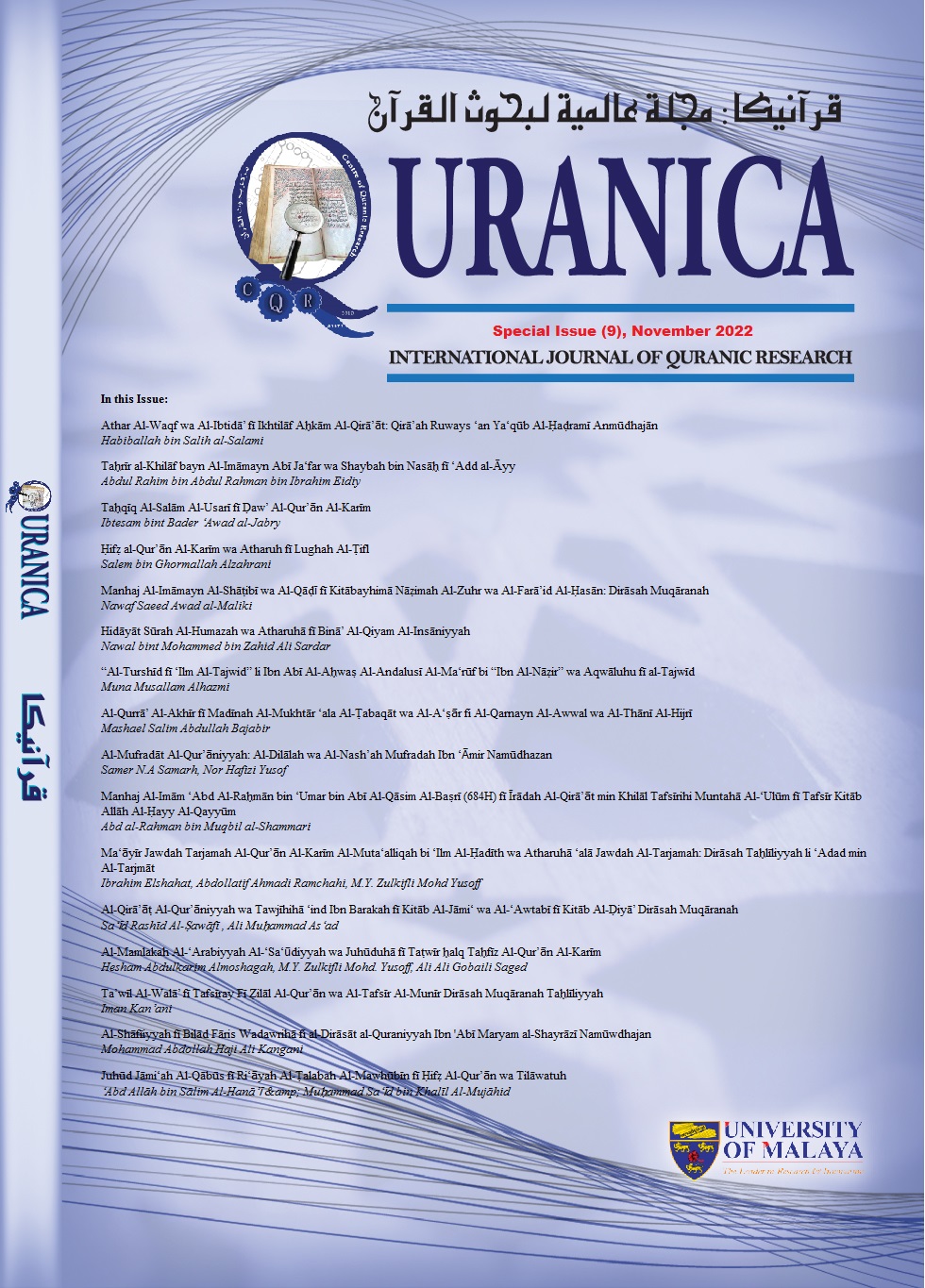Ma‘āyīr Jawdah Tarjamah Al-Qur’ān Al-Karīm Al-Muta‘alliqah bi ‘Ilm Al-Ḥadīth wa Atharuhā ‘alā Jawdah Al-Tarjamah: Dirāsah Taḥlīliyyah li ‘Adad min Al-Tarjmāt
DOI:
https://doi.org/10.22452/quranica.vol14no2.19Keywords:
Translation and Interpretation, Science of Al Hadith, Qur’an Translation Quality Assessment, Principles of Hadith, Sunnah and Translation.Abstract
If the process of translating the Noble Qur’an is a complex process that requires a lot of tributaries, capabilities and efforts intertwined with many different sciences and tools and techniques, then the process of evaluating these translations is in no way less than it, but rather exceeds it in reliance on the governing standards and controls through which it is based on Firm foundations in the evaluation process. The evaluation of the translation of the Qur’an from the Sharia aspect is one of the most important aspects of the evaluation process. Further, The science of Al Hadith is one of the most important resources of Sharia Knowledge; since it governs all aspects of Sharia knowledge including but not limited to Aqeedah, Fiqh, Tafseer. This is because the science of Hadith governs the acceptance o rejection of Hadith narrations included in all of the mentioned aspects. By virtue of its subject matter, the science of Al Hadith come at the top of the priorities of the Sharia-related evaluation of the Quran translation process. Since it paves the way for concluding the authentic and inauthentic narrations and interpretations and consequently its translation. Since the relationship between the science of Al Hadith and the translation process of the Quran is undiscovered, this paper aims to elicit the most important quality standards for translations of the Noble Qur’an related to the science of Al Hadith through a comparative analysis of some translations of the Noble Qur’an in the light of this science and the impact of the translator’s knowledge of this science and application of these standards on the validity and quality of his translation.
Downloads
Downloads
Published
Issue
Section
License
Disclaimer
QURANICA makes every effort to ensure the accuracy of all its contents. However, opinions, discussions, views and recommendations are expressed in this journal do not necessarily reflect the official policy of QURANICA or views of its editors or publishers. Therefore, QURANICA and its publishers will not be liable for any controversy may be arisen. The journal reserves the right, at its sole discretion, to change its terms and conditions of publications.
Copyright
It is a condition of publication that manuscript submitted to the journal have not been published, accepted for publication, nor simultaneously submitted for publication elsewhere. By submitting a manuscript, the author(s) agrees that copyright for the article is transferred to the publisher, if and when the manuscript is accepted for publication.






